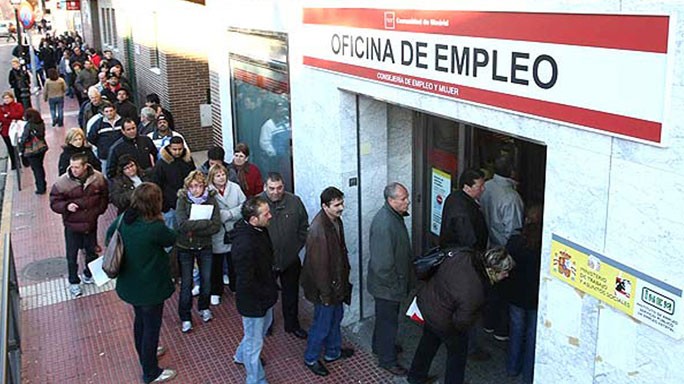High and divergent unemployment rates in Europe pose a serious threat to the region's long-term economic health, central bankers and economists warned during a weekend conference held by the European Central Bank.
The ECB's seminar, the second of what it plans as an annual conference in the resort town of Sintra on Portugal's western coast, brought together central bankers and economists from Europe, the U.S. and Asia to examine the root causes of high unemployment and persistently weak inflation in Europe.
The attendees dwelled extensively on an economic concept known as "hysteresis," a reduction in economic output brought on by weak growth that gives rise to long-term unemployment. The remedies to such problems, however, lie partly with fiscal-policy officials and not central bankers, who don't set labor and other economic policies. The conference largely lacked representatives from finance ministries and businesses.
But ECB President Mario Draghi signaled that the stakes were too high for central bankers to keep silent, particularly in the 19-member eurozone, where diverse countries ranging from powerful Germany to recession-ravaged Greece set their own economic and fiscal policies but share a single currency and monetary policy.
Market Watch





